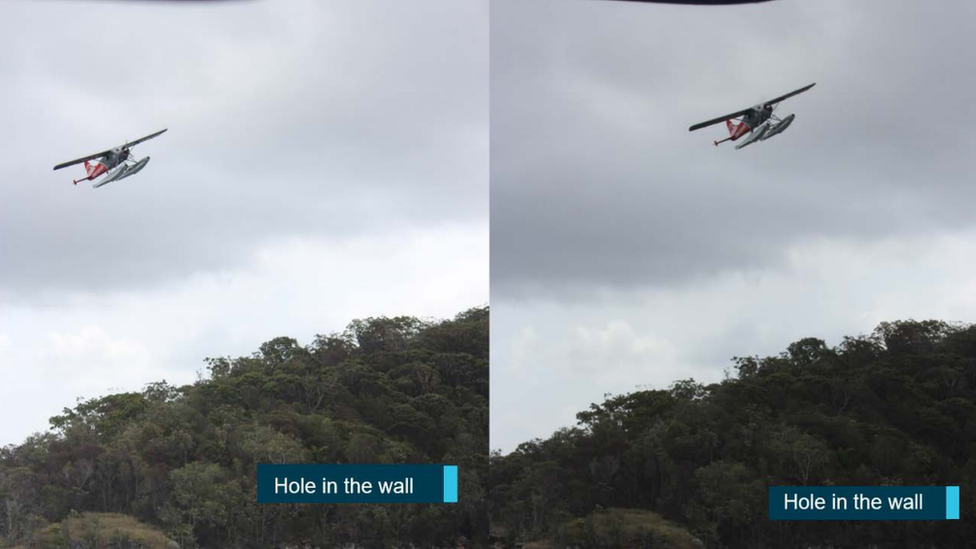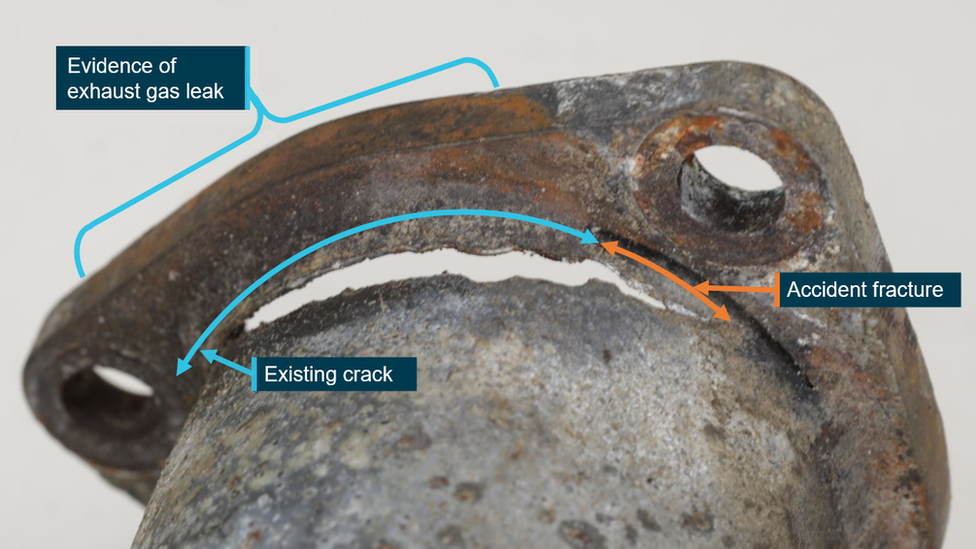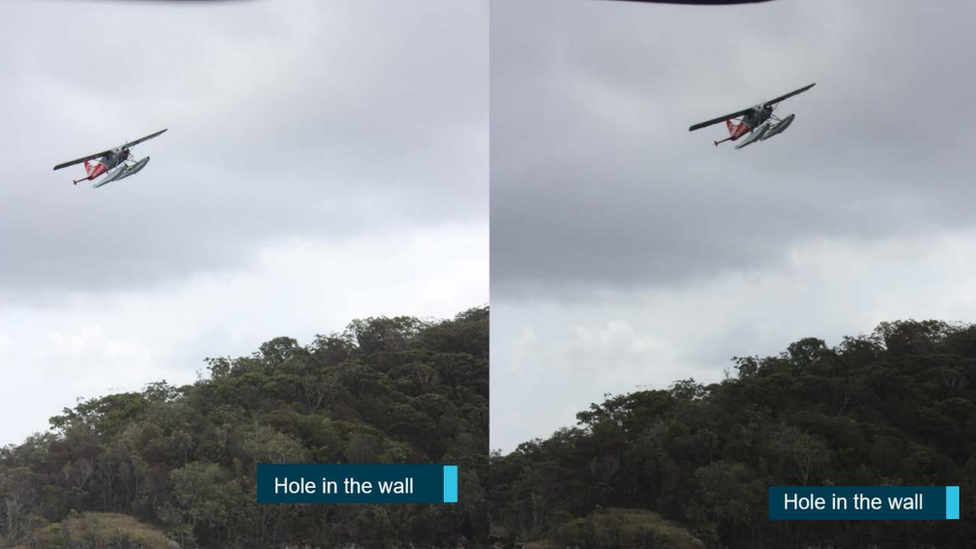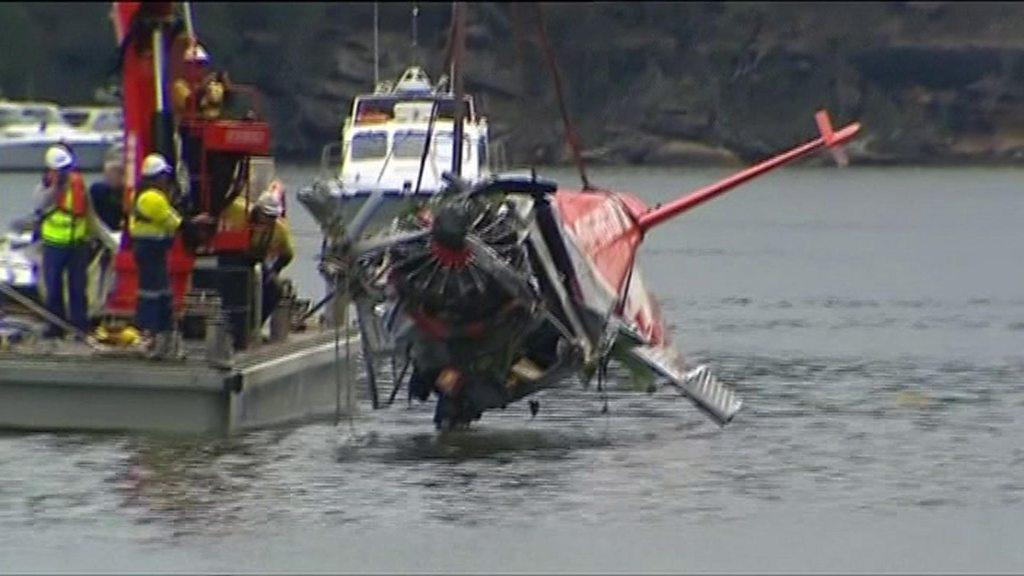Sydney seaplane crash: Pilot was 'adversely affected by gas leak'
- Published

The seaplane seen just before it crashed, flying over a spot known as "hole in the wall"
The pilot of a seaplane which crashed into an Australian river - killing all on board - had most likely been affected by a gas leak, officials say.
The Canadian pilot and five members of a British family died in the crash north of Sydney in December 2017.
The cause of the tragedy has been the subject of an ongoing investigation by Australian air safety officials.
Investigators said the leak could have been prevented if an appropriate detector had been fitted.
High levels of carbon monoxide were found in post-mortem tests on three of the victims.
"The Australian Transport and Safety Bureau (ATSB) considers the levels of carbon monoxide were likely to have adversely affected the pilot's ability to control the aircraft," the investigators said in an update on Friday.
Businessman Richard Cousins, 58, died alongside his 48-year-old fiancée, magazine editor Emma Bowden, her 11-year-old daughter Heather and his sons, Edward, 23, and William, 25, and pilot Gareth Morgan, 44.

Victims (clockwise from top left) Richard Cousins, Emma Bowden, Will Cousins, Gareth Morgan, Heather Bowden, Ed Cousins
The family had been on a sightseeing flight when it nose-dived into the Hawkesbury River at Jerusalem Bay, about 50km (30 miles) from the city centre.
The ATSB said it was likely the pilot and passengers were exposed to gas inside the cabin which had leaked out of the aircraft's engine bay.
Investigators said they had found cracks in a part called the engine exhaust collector ring - which could have caused a gas leak.

Investigators say they found cracks in the aircraft which could have led to the gas leak
ATSB chief commissioner Greg Hood said an electronic carbon monoxide detector could have averted the crash.
"These detectors are now inexpensive and widely available," he said.
"Had there been an alert of the presence of carbon monoxide, the pilot would have been able to take measures to reduce the risk to those on board."
Authorities had retrieved the aircraft, recreated its flight path and sought medical advice to determine what happened.
The ATSB said it would release its final report in coming months.
Authorities recovered the wreckage in January 2018
- Published21 August 2018

- Published20 December 2018

- Published4 January 2018
